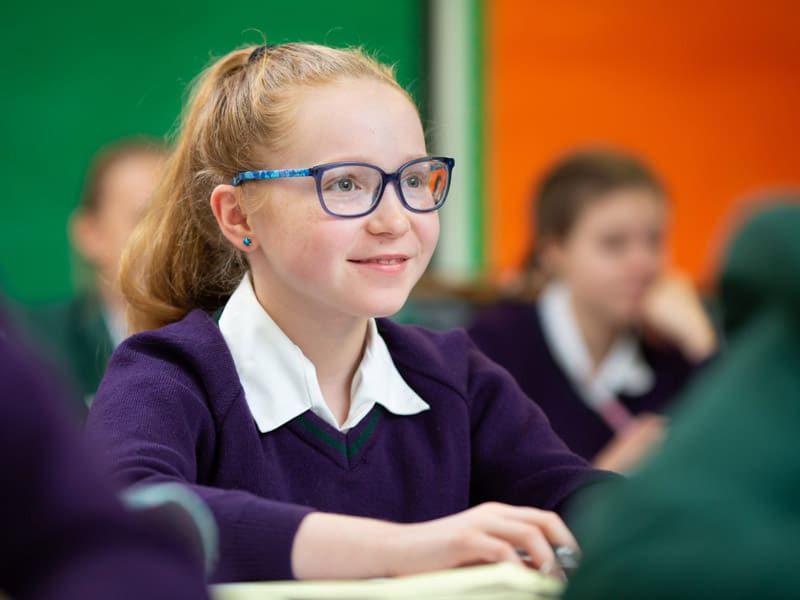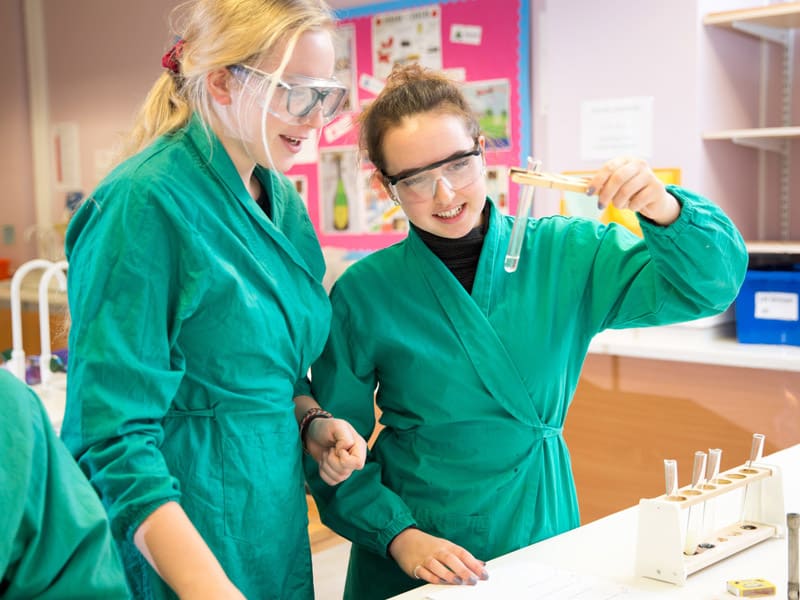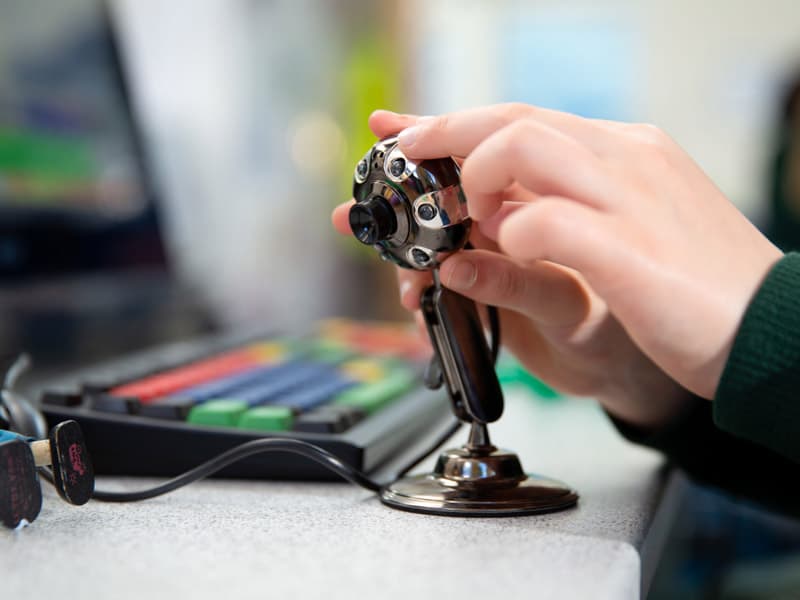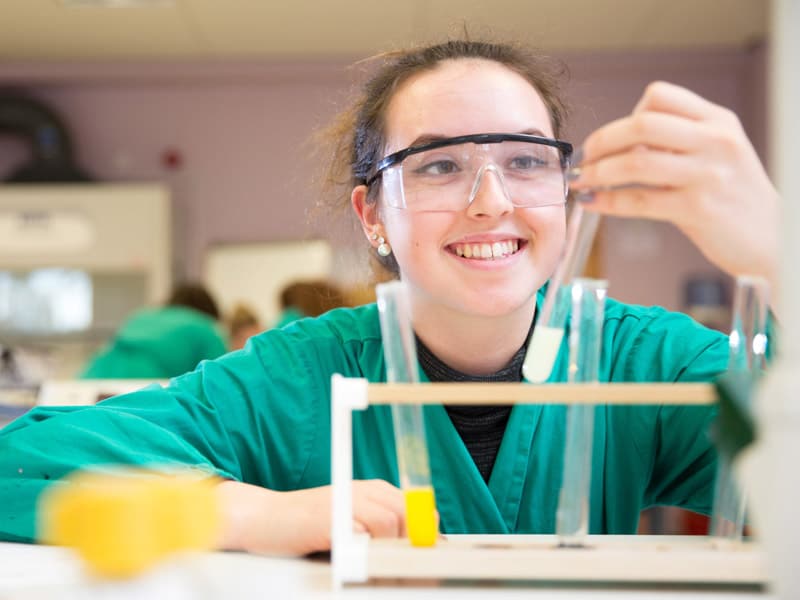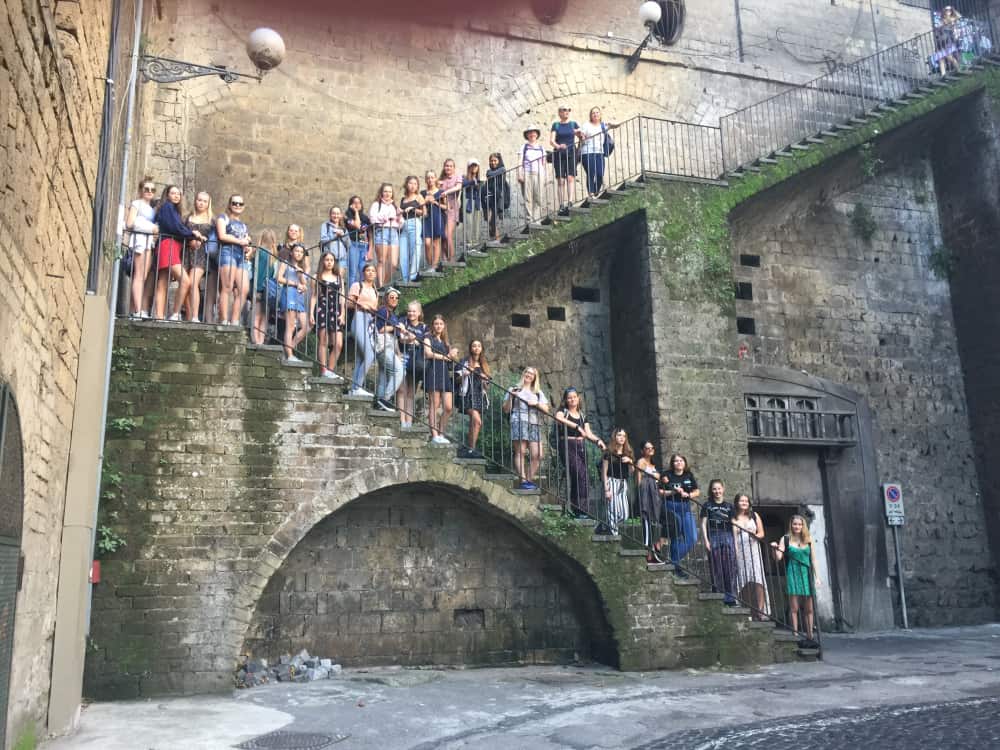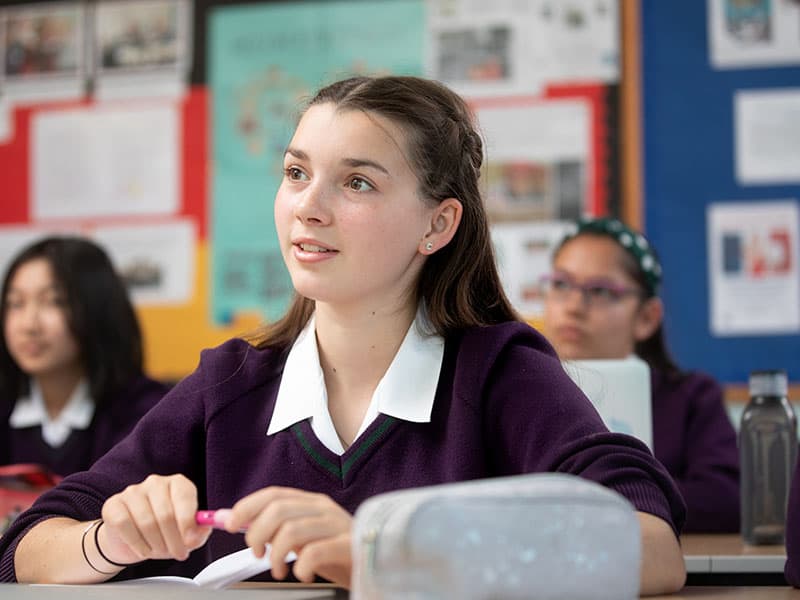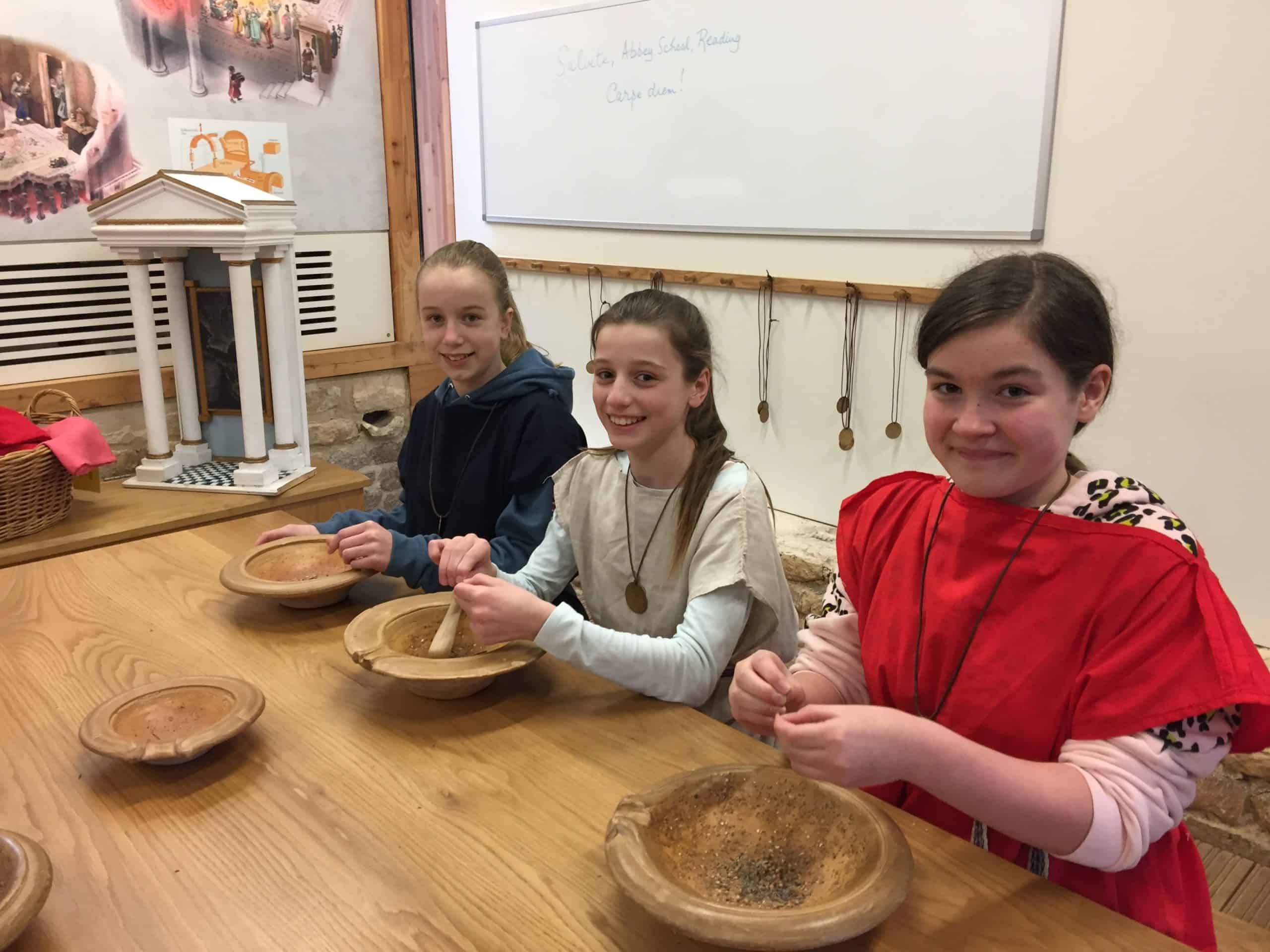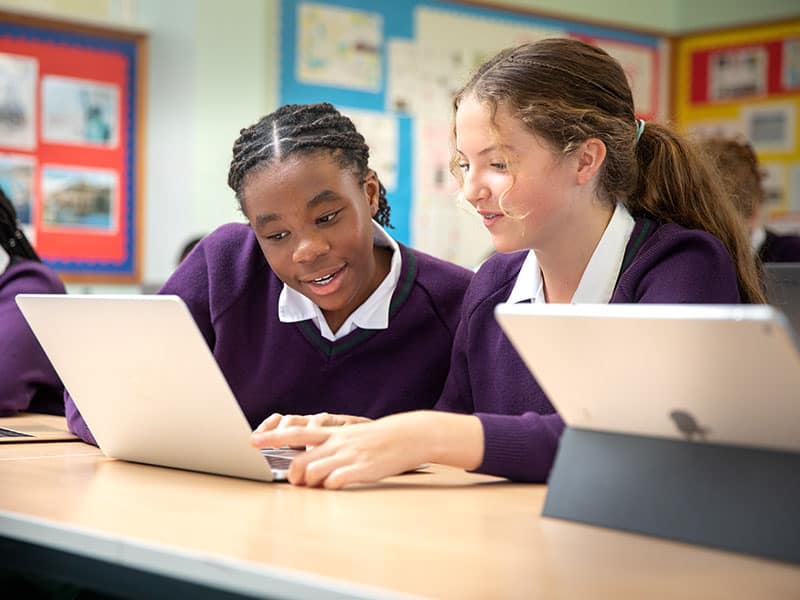Mathematics
- Home
- Archive by Category "Senior"
- Page 3
Mathematics is a creative and highly inter-connected discipline, developed over centuries and providing the solution to some of history’s most intriguing problems.
Mathematical thinking is important for all members of a modern society and the language of Mathematics is international. Its importance is universally recognised and its study equips students with powerful ways to describe, analyse and change the world. The feeling of achievement that comes from finally solving what at first seems to be an intractable problem is unique to the subject, but comes only to those willing to try.
“The Maths department has always been constant in the quality of teaching, resources and continuity through the years. From UIII to UVI, Maths has always been reliable. I’m going to miss it so much! Many thanks for all the help!”
Upper Sixth Leaver
The aim of the Department is to develop each girl’s understanding of Mathematics and mathematical processes in a way that promotes confidence, fosters enjoyment and inspires curiosity. The courses followed at The Abbey provide opportunities for the girls to extend their problem-solving skills and to develop clear reasoning and logical thought, whilst also encouraging an appreciation of the relevance, beauty and importance of Mathematics in everyday life. We offer extra support at drop-in sessions and enrichment activities that challenge and stimulate.
There is always a very high uptake of Mathematics in the Sixth Form as it is an excellent gateway to university and a wide range of careers.
Welcome from Head of Department – Elaine Cook
Maths at The Abbey as seen through the eyes of our students:
Chemistry
- Home
- Archive by Category "Senior"
- Page 3
Why does ice float? Why is carbon monoxide poisonous? Have you wondered how firework colours are created?
The study of Chemistry provides us with the answers to many questions such as these and encourages us to develop curiosity about the world around us. Moreover, Chemistry equips us with the practical and evaluative skills to be confident, competent and inquisitive scientists.
Taught by passionate subject specialists at all levels, three of whom have come in from a business background (pharmaceuticals, consumer goods and chemical engineering) which continues to bring a wealth of experience and enrichment to the department. With an emphasis on hands-on experience wherever possible, the department aims to provide an environment in which all students are able to flourish while honing their practical skills, knowledge and understanding.
The problem-solving, analytical and numeracy skills which students develop over the course of their study of Chemistry opens up opportunities in many diverse fields such as Medicine, cutting edge scientific research, Engineering, Law, Business and careers in the City.
Remember: It’s all about the electrons and, whatever you do, don’t mess with the protons!
Welcome from Head of Department – Jasmina Harrison
Chemistry at The Abbey through the eyes of our students:
Computer Science
- Home
- Archive by Category "Senior"
- Page 3
In an all girls’ school, Computer Science is not seen as a boys’ subject. Instead, girls see technology changing the world and want to be a part of it.
Computers run our everyday lives, yet people take them for granted. Computer Science is about learning and understanding the STEM principles underlying every kind of computing system. As a successful Computer Scientist, students will develop an ability to think creatively, logically and critically.
Through a combination of individual learning, team projects and experimentation, students will learn the ‘how’ behind the ever changing world of computers. They will relish the ‘Aha!’ moment when a bug is fixed whilst programming. Students and staff work together to develop the knowledge to become a technological leader, not just a follower. Teachers with years of real-world experience will use their enthusiasm, passion and knowledge to guide students on this exciting journey.
Beyond the classroom
A range of lunchtime and in lesson activities are offered. For example, Cyber Discovery Challenge in partnership with GCHQ and Bebras with the University of Oxford. Students love to use these challenges to extend their problem solving skills. In addition, Computer Science teachers are available during lunch times for curriculum and homework assistance.
Welcome from Head of Department – Alex Baker
Computer Science at The Abbey as seen through the eyes of our students:
Biology
- Home
- Archive by Category "Senior"
- Page 3
What is life? How do organisms survive at the molecular, cellular, and anatomical levels? How do they interact with one another? What evolutionary processes may result in a new species arising from an existing one? These questions are important and studying biology is about understanding the answers.
The world is facing many challenges: there is a growing human population increasing the demand for food, much of the natural world is in danger of being destroyed by human activity and the world’s population is aging with significant effects on brain function. These are a few examples of why the world needs biologists, now, more than ever.
The aim of the department is to allow students to be curious about the natural world around them. There is an emphasis on developing skills, confidence in the laboratory and a love of the subject. Enhancement and extension activities are provided for students of all ages and are used to boost their understanding of how biology interacts with the other STEM subjects.
Studying Biology opens doors to a myriad of career options. These include pathways that have the potential to advance the state of life, through medicine, research, exploration or conservation and new interdisciplinary careers such as in the areas of biotechnology, bioinformatics and biomedical engineering.
Whether understanding key ideas in genetics, knowing how the human body works or why palm oil production destroys ecosystems, Biology sparks the imagination.
Beyond the classroom
Enhancement and extension activities are provided for girls of all ages including: Biology club for Upper III and Lower IV, Biology Challenge competition for Lower V (Year 10), Biology Olympiad competition for Upper VI, CREST awards, recommended reading lists, a weekly update of upcoming television programmes and the opportunity to attend lectures on advanced biological research including the annual Mrs Jo Trott Memorial Lecture by visiting scientists.
Welcome from Head of Department – Manal Spencer
Biology at the Abbey through the eyes of our students:
Spanish
- Home
- Archive by Category "Senior"
- Page 3
Why do students learn Spanish:
-
They become communicators to more than 500 million speakers across the world.
-
They benefit from speaking the second most widely spoken language in four continents.
-
They become immersed in the rich Hispanic culture available across 20 Spanish-speaking countries.
-
They become aware of interesting facts like the fact that The UK is the fifth largest investor in Mexico, and that Spain has the second highest number of UNESCO World Heritage sites and is the third most popular destination in the world.
-
They become attractive to universities. Spanish is offered at degree level by 70 universities across the whole of the UK.
Alongside all these reasons, the students at the Abbey choose Spanish because they love it. This love comes from a very dedicated team of teachers (among them some native speakers) whose passion is to teach Spanish. Students sing songs, play games, take part in competitions and get immersed in the Hispanic culture. In the Spanish lessons, there are always fun activities that vary from writing a literary Calaverita for the Day of the Dead to doing a virtual trip to Costa Rica. The department is at the front of the latest technology and our department takes the lead in online learning. Literature becomes a very interesting part of the curriculum which raises motivation and equips the students with the skills to succeed in their path to top universities.
Among the books studied are La Casa de Bernarda Alba by Lorca, Manolito Gafotas by Elvira Lindo, and many others. Students also get the chance to watch many interesting films such as Zipi y Zape, Volver, Las 13 Rosas. Students become avid readers of Spanish Literature as well as of Hispanic papers and magazines. This consolidates their foundation to become not only curious learners but also critical thinkers. They become well prepared for the amazing future that awaits them.
Beyond the classroom
We understand that one of the best ways to learn a language is through speaking practice. This means the girls are able to go on a variety of study trips and family stays to Spain. The most recent visits have included:
- Málaga
- Granada
- Córdoba
Welcome from Head of Department – Beatriz Trujillo
Spanish at The Abbey as seen through the eyes of our students:
Italian
- Home
- Archive by Category "Senior"
- Page 3
There’s nothing quite as exciting as learning a new language from scratch – and at The Abbey, this is a possibility in Sixth Form! As part of the IB programme, students can start learning Italian ab initio as their foreign language.
This course is perfect for anyone who has little to no experience of the Italian language, but who would like the opportunity to learn more about Italian language and culture. In two years, students will learn how to navigate everyday-life conversations in Italian thanks to an intensive but supportive programme. Studying Italian in Sixth Form allows students to apply the language skills they have developed at GCSE while working with the full range of resources available to them such as podcasts, blogs, and learning apps, all of which will play a key role in their learning. Using this vast array of resources, which also include books, magazines, and newspapers, students will not only learn to speak the language, but also to understand and appreciate the culture.
Studying Italian is not only an exciting experience, but a great opportunity to add another feather to your cap as you apply to university and for jobs later. Universities value not only knowledge of a foreign language, but also students who take on intellectual challenges such as starting a new language from scratch. Not only will Italian prove invaluable for students of music and art, it will also open up a range of opportunities in the fields of fashion, business, and design. Since all Italian classes at the Abbey are taught by a native speaker, students will get the chance to gain a real perspective on Italian life and language.
Welcome from the Head of Department – Luca Vairo
Italian at the Abbey as seen through the eyes of our students:
German
- Home
- Archive by Category "Senior"
- Page 3
German – the most widely spoken native language in Europe – will open doors to Germany, the biggest economy of the EU and fourth largest worldwide. Home to numerous international corporations and on the front line of new technologies, German ranks second as a scientific language worldwide and is a must-have subject for musicians and historians.
Students opting to take German in Lower IV (Year 8) really connect with this completely different, fun and refreshingly new language, with its logical pronunciation and spelling. Students build on their prior foundations in French and Latin, but German’s Anglo-Saxon roots mean that there is no risk of confusion with French – and plenty of overlap with English!
Students at The Abbey make impressive progress to IGCSE, IB and A Level, thanks to dynamic, fun lessons and an engaging introduction to the history, culture and traditions of Germany, Switzerland and Austria. The teaching team and language assistant are an effective blend of native and non-native speakers who share their enthusiasm through song, film and extra-curricular activities, ranging from painting Easter eggs to celebrating Karneval, eating “spaghetti ice-cream” and watching films.
Learning German is also ideal preparation for the study of other languages such as Russian, Chinese or Arabic at university.
Beyond the classroom
Outside the classroom, educational visits are planned to Berlin, Munich, Vienna and the Christmas Market in Aachen to give students the opportunity to apply their language skills and experience German culture first-hand.
Welcome from Head of Department – Alison Seabrook Moore
German at The Abbey as seen through the eyes of our students
French
- Home
- Archive by Category "Senior"
- Page 3
Studying French will take students on an exciting journey which will equip them with communication skills to explore and discover the many countries round the world where the language is spoken.
Learning French at The Abbey is a positive and fun experience where students from Upper III (Year 7) through to Upper VI (Year 13) use the latest resources and online interactive technologies to develop their knowledge of vocabulary and grammar, expand their powers of expression and become confident communicators. Throughout their journey, Abbey linguists have substantial opportunities to sample the best of what French culture has to offer in terms of films, music, food or architecture. Students are also able to experience French culture first hand and use the language in real life situations during our study visit to Nice on the French Riviera.
A team of dedicated teachers shares their passion for the language and helps girls achieve excellent results in all public examinations. Every year, some students go on to read French in prestigious universities. There is no doubt that studying French gives an edge over competitors and open doors to a greater number of jobs in fields such as Business, Law and Diplomacy.
Welcome from Head of Department – Isabelle Berrow
French at The Abbey as seen through the eyes of students:
Classics
- Home
- Archive by Category "Senior"
- Page 3
Latin at The Abbey is fun! From Upper III we bring the Classical World to life, not only studying the finer points of Latin grammar but delving into life in Pompeii and Roman Britain, visiting Chedworth Roman Villa and Bath. Language and cultural links with English and Modern Languages abound, making our studies relevant and useful.
Latin and Classical Greek are GCSE options where we continue to build language skills as well as having the exciting opportunity of reading Virgil and Homer in the original. Girls have the chance to visit the Bay of Naples and imagine the bustling culture of the forum or the theatre. Latin and Greek are well established subjects in the Sixth Form with the students not only attending lectures and plays but even celebrating Virgil’s birthday! We are proud of the number of girls we send off to university to continue with Classical subjects.
Welcome from Head of Department – Elizabeth Sutcliffe
Classics at The Abbey as seen through the eyes of our students:
Philosophy and Theology
- Home
- Archive by Category "Senior"
- Page 3
In Philosophy and Theology, students delve into some of life’s deepest questions. Engaging both the emotions and the intellect, lessons involve exploring the motivations behind worldviews and beliefs and applying learning to current issues.
Critical thinking and empathy skills are central to the subject and are fostered in a safe, nurturing environment. Such skills prepare learners for a rapidly changing world and a wide range of careers.
In Upper III (Year 7), pupils explore major faith narratives and develop philosophical and emotional literacy. In Lower IV (Year 8), thinking and evaluation skills are developed through interaction with major themes in philosophy and through a critical consideration of Jesus in Christianity.
Students begin a Short Course GCSE in Religious Studies (Edexcel B) in UIV(Year 9), with a focus on beliefs and ethical issues in Christianity and Islam. The GCSE is examined at the end of Lower V(Year 10). Upper IV and Lower V students have additional dedicated time learning a range of reasoning skills.
In Sixth Form, the A level route offers a study of philosophy, ethics and theology (OCR). For IB, several key philosophical themes are explored.
Outside the classroom, students can explore questions further in Philosophy Club and older students can take part in a Philosophon.


